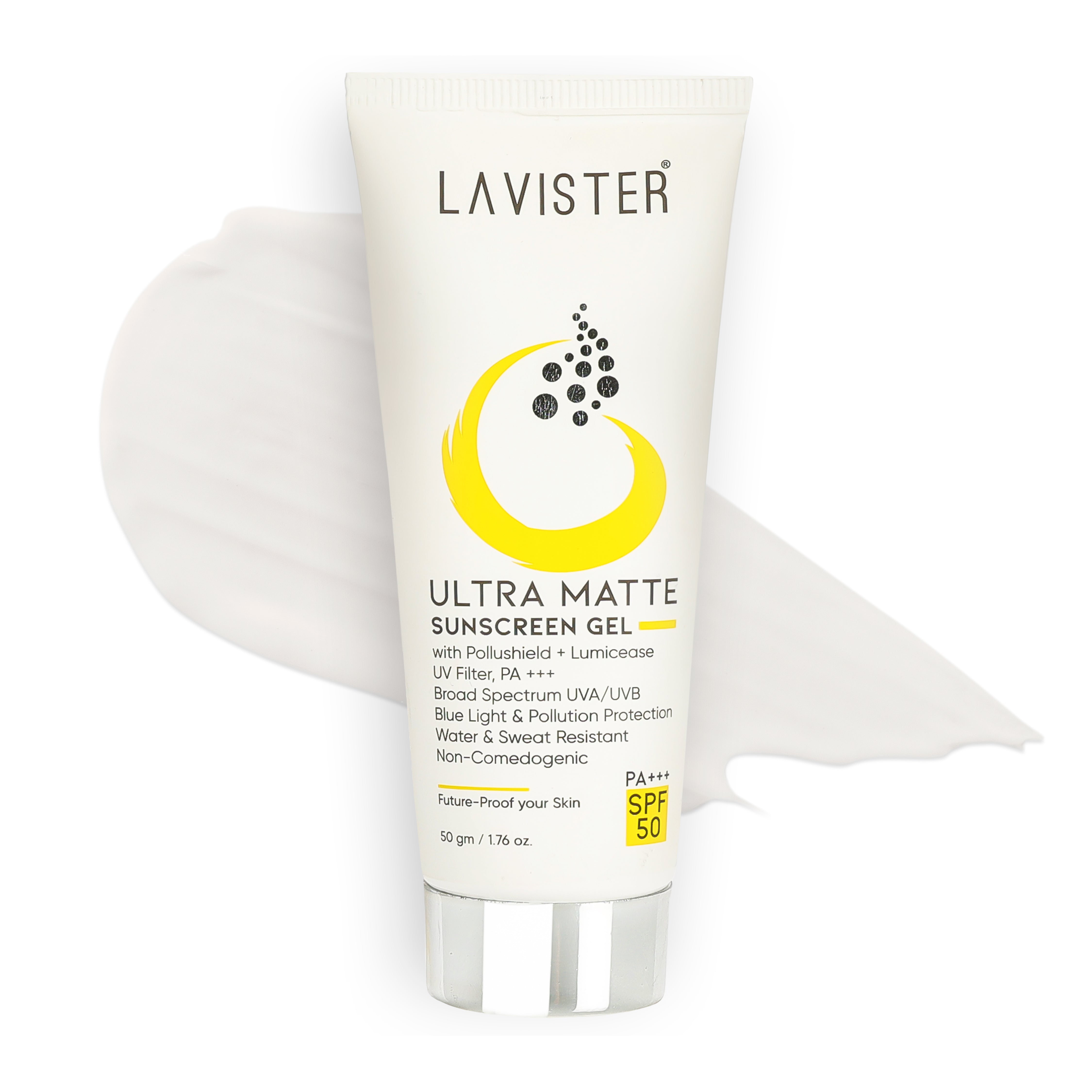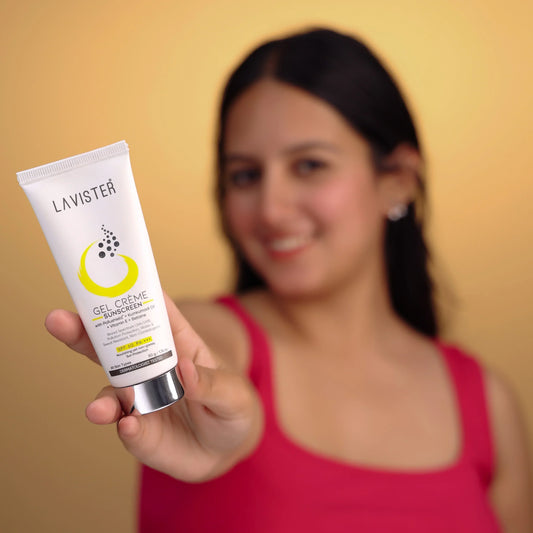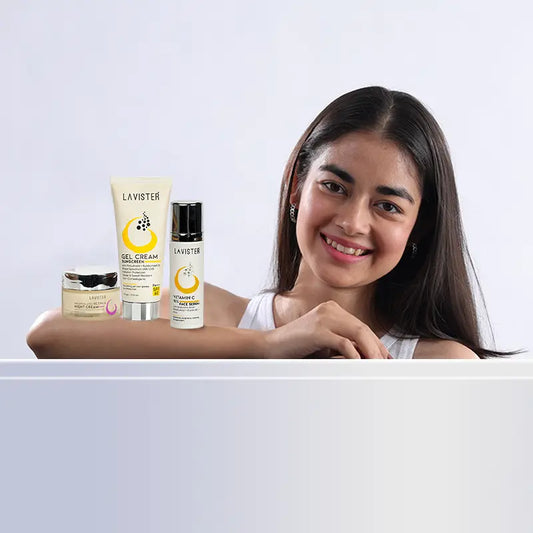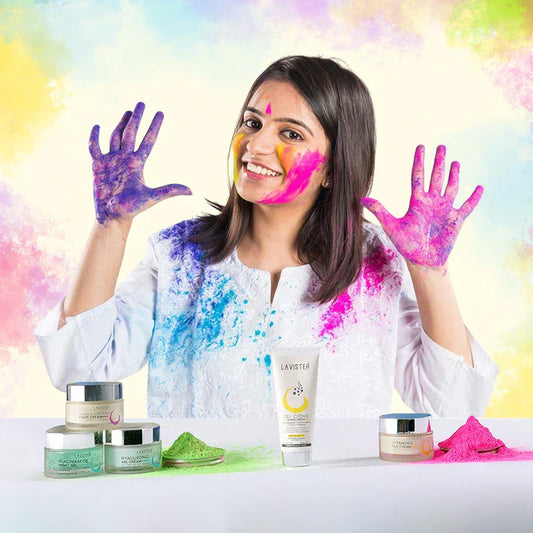Does Sunscreen Prevent Cancer? Myths and Facts about Sunscreen
We all know that sunscreen is one of the most essential face care products, but most of us still have no clue why it is necessary in our skincare. Cloudy or sunny, applying sunscreen daily is the need of the hour in guarding your skin from harmful UV rays. These harmful rays cause damage to the skin, premature ageing, and even develop skin cancer. So, let's talk about the way sunscreens work and why they are a necessity to ensure that your skin remains protected. In this blog, we will know everything about sunscreens and how to choose the best one for you.
How Do Sunscreens Work?
Sunscreens create a layer on your skin that reflects or absorbs harmful ultraviolet (UV) rays from the sun. UV rays cause sunburns and long-term damage to your skin. Sunscreens reflect or absorb the rays off your skin before they travel deep into it. There are two types of UV rays: UVA and UVB. UVA rays cause premature ageing, and UVB rays cause sunburns. Sunscreens block these damaging rays from reaching your skin.
What does SPF stand for?
SPF is short for Sun Protection Factor, and it's the test of how well sunscreen will block those UVB sunburn-causing rays. Example: SPF 30 means you can remain in the sun for an extra 30 minutes without sunscreen. The higher the SPF, the higher the level of protection. Yet no sunscreen will block 100% of the UV rays, so it is reasonable to reapply regularly, particularly if in the water or working up a sweat. SPF is an important aspect of selecting the appropriate sunscreen for your skin. Be sure to use a broad-spectrum sunscreen that protects against UVA and UVB rays.
The Relationship Between Sunscreen and Cancer Prevention
Sunscreen plays an important role in skin cancer prevention by preventing harmful UV rays from reaching your skin. These rays can cause harm to the DNA of skin cells, thus resulting in a higher risk of skin cancer in the long term. Using sunscreen daily decreases this risk by keeping your skin safe from the harmful rays of the sun. Studies have shown that people who consistently use sunscreen have a lower risk of developing skin cancer, including melanoma, the deadliest form of skin cancer. So, by applying sunscreen, you are taking a proactive step in protecting your skin and preventing cancer.
Ingredients of Sunscreen that Prevent Damage by UV Rays
The formulation of sunscreen is such that it absorbs or reflects the UV rays to prevent damage to the skin. The common ingredients of most sunscreens are listed below:
Zinc Oxide
It acts as a physical barrier that repels UV rays from your skin. It is suited for all skin types and provides broad-spectrum protection.
Titanium Dioxide
Similar to zinc oxide, titanium dioxide is another mineral active ingredient that offers physical sun protection by deflecting UV rays.
Avobenzone
It is a chemical sun-blocking agent that absorbs UVA rays so they cannot penetrate your skin.
Octinoxate
It is a UVB ray-absorbing chemical that prevents sunburns.
Homosalate
An active sunscreen chemical that absorbs UVB rays and helps shield against sun-induced skin damage.
These chemicals are formulated to effectively protect your skin from damaging UV radiation. Always check the ingredient list to ensure maximum protection.
Is Sunscreen a Cancer Shield?
Although sunscreen is a good weapon against skin cancer, it's not a 100% shield. Sunscreen reduces your risk, but you can't promise you won't develop skin cancer. Heredity, the type of your skin, and general sun exposure all play a part, too. That's why it is recommended that you use sun safety along with sunscreen. Protective clothing, shade, and avoiding the sun's peak hours contribute to it. Collectively, these measures can maintain healthy skin and lower your risk of developing skin cancer in the future.
Myths About Sunscreen Debunked
Several myths regarding sunscreen complicate matters, making it difficult to know what is true. Let's clear some of the most common ones:
Sunscreen causes cancer.
Some people believe that sunscreens contain harmful chemicals. However, science has confirmed that sunscreen is safe and effective in protecting the skin and preventing sun cancer. Sunscreen ingredients are tested and approved to demonstrate their capability to protect skin.
I have a dark complexion. I do not require the use of sunscreen.
Although darker skin has more natural protection against UV rays, it is not immune to sun damage. Dark skin burns and is also at risk for skin cancer. Sunscreen should be something that everybody, no matter the colour of their skin, is applying to the skin for protection.
My sunscreen is water-resistant, so I need not reapply it.
Even if your sunscreen is water resistant, sweat, swimming, or perspiration can cause it to be removed. For ultimate protection, reapply it often, every two hours.
I only require sunscreen when it is sunny.
UV radiation is strong enough to hurt your skin even on cloudy days, so sunscreen should be used daily, irrespective of the weather. UV radiation is strong enough to travel through clouds and cause damage to your skin.
Sunscreen is enough to prevent skin cancer.
Although sunscreen is needed, it's not the whole sun protection regimen. Protective clothing, shade, and staying out of the sun when it's strongest are also essential to your skin protection.
Gel vs. Cream Sunscreen: What Do You Use?
Gel Cream Sunscreen
The Gel Cream Sunscreen from Lavister has SPF 60 PA+++ protection, so it provides a powerful shield against harmful UV rays. It contains ingredients like kumkumadi oil, betaine, and vitamin E, which impart higher nourishment and care to your skin and protect it against the sun. Its light and non-greasy formula means you can easily apply it daily without your skin feeling heavy and greasy.
Lavister Ultra Matte Sunscreen Gel
This sunscreen gel, with SPF 50 and additional protection from Pollushield and Lumicease UV filters, provides broad-spectrum UVA/UVB protection. Its ultra-light, matte texture is ideal for users who hate oily textures. This sun gel suits oily or combination skin individuals who require protection without feeling weighed down. This sunscreen also works as a face gel for glowing skin, shielding it from contaminants while giving it all-day freshness.
Both face care products are wonderful for protecting your skin from harmful UV rays and giving it a healthy and glowing look. Choose whatever is best for your skin and has the most requirements.
Conclusion
Sunscreen is not only a skin care product but a must-have part of shielding your skin from the harmful rays of the sun. Everyday use of sunscreen will prevent sunburn, premature ageing, and even skin cancer. No matter your skin type or the kind of weather, ensure sunscreen becomes an everyday part of your regimen to safeguard your skin.
Lavister offers a line of skincare products, such as our Lavister Gel Cream Sunscreen and Lavister Ultra Matte Sunscreen Gel, to protect and moisturise your skin. Buy skin care products at Lavister today and enjoy healthier, more radiant skin. Protect and keep your skin safe from harm with our in-house products!
Sheild Your Skin with the Perfect Sunscreens from Lavister

Protect your skin from harmful UV rays with Lavister’s sunscreens. Our gel-based sunscreen is lightweight and great for oily skin, giving you a fresh, non-greasy feel while keeping your skin hydrated. If you prefer a matte finish, our ultra-matte sunscreen controls shine and keeps your skin looking smooth all day. Both sunscreens offer broad-spectrum protection, shielding your skin from sun damage and premature aging. Buy sunscreens online from Lavister and keep your skin safe and glowing!
Sign up to our newsletter to get the best deals and latest product updates.
Trending Blogs
-

Effects of Stress and Anxiety on Skin and Hair, And How to Manage It
Discover how stress and anxiety impact your skin an...
Read More






